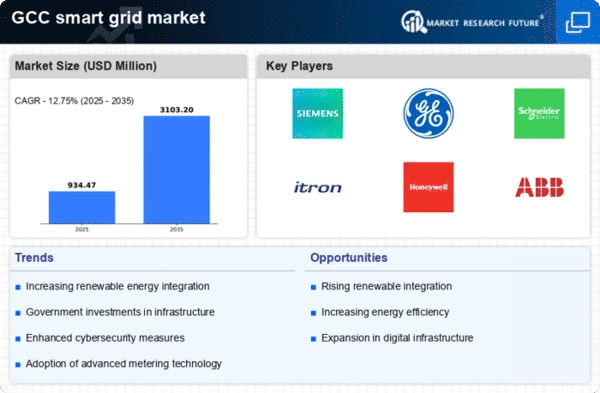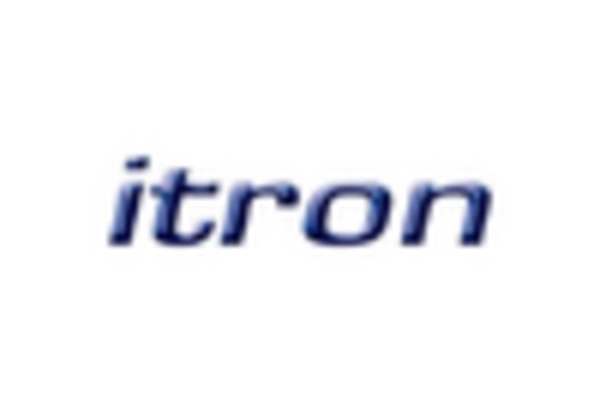Investment in Smart Infrastructure
Investment in smart infrastructure is a pivotal factor influencing the smart grid market in the GCC. Governments and private sectors are channeling substantial funds into upgrading existing grid systems to incorporate smart technologies. This investment is aimed at enhancing grid reliability, reducing operational costs, and improving service delivery. The GCC region is expected to allocate over $10 billion towards smart grid projects by 2026, reflecting a strong commitment to modernizing energy infrastructure. Such investments not only facilitate the integration of renewable energy sources but also promote the adoption of electric vehicles, further driving the growth of the smart grid market.
Government Initiatives and Policies
Government initiatives in the GCC region are increasingly focusing on the development of the smart grid market. These policies aim to enhance energy efficiency and promote sustainable practices. For instance, the GCC governments have set ambitious targets for renewable energy integration, which is expected to drive investments in smart grid technologies. The region's commitment to reducing carbon emissions by 30% by 2030 further emphasizes the need for advanced grid solutions. As a result, the smart grid market is projected to grow significantly, with an estimated CAGR of 15% over the next five years. This growth is likely to be fueled by regulatory frameworks that encourage innovation and investment in smart grid infrastructure.
Rising Demand for Energy Efficiency
The rising demand for energy efficiency is a significant driver of the smart grid market in the GCC. As energy consumption continues to rise, there is an increasing need for solutions that can optimize energy use and reduce waste. The smart grid market is responding to this demand by offering technologies that enable better load management and demand response capabilities. According to recent studies, energy efficiency measures could potentially reduce energy consumption in the GCC by up to 25% by 2030. This shift towards energy-efficient solutions is likely to stimulate investments in smart grid technologies, as utilities seek to meet regulatory requirements and consumer expectations.
Increased Urbanization and Population Growth
Increased urbanization and population growth in the GCC are driving the need for modernized energy infrastructure, thereby impacting the smart grid market. As urban areas expand, the demand for reliable and efficient energy supply becomes critical. The GCC countries are witnessing rapid urban development, with cities like Dubai and Riyadh experiencing significant population influx. This urban growth is projected to increase energy demand by 30% over the next decade. Consequently, utilities are compelled to invest in smart grid technologies to enhance grid resilience and accommodate the growing energy needs of urban populations. This trend is likely to propel the smart grid market to new heights.
Technological Advancements in Energy Management
Technological advancements play a crucial role in shaping the smart grid market. Innovations in energy management systems, such as real-time monitoring and predictive analytics, are enhancing grid reliability and efficiency. The adoption of Internet of Things (IoT) devices is facilitating better communication between utilities and consumers, leading to optimized energy consumption. In the GCC, the implementation of smart meters is expected to increase by 40% by 2027, reflecting a growing trend towards digitalization in the energy sector. These advancements not only improve operational efficiency but also empower consumers to make informed decisions about their energy usage, thereby driving the smart grid market forward.
















